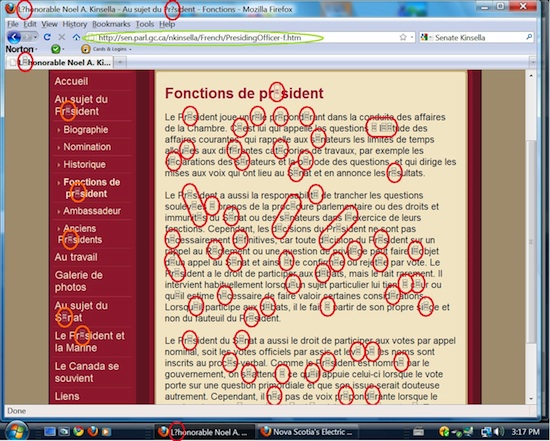04 Apr Improving government websites
Our old friend Ivan Smith’s ears perked up at our mention of an independent advisory panel to offer suggestions on how to improve a government website. He wonders if anything similar is planned in Canada.
Smith points to copyright activist Michael Geist’s interesting testimony March 25 before the House of Commons Standing Committee on Canadian Heritage (available, sigh, not on the committee’s website, but on Geist’s.) Moneyquote:
In recent years, many countries have embraced open data initiatives, including both the U.S. and U.K. Others, such as Australia, have adopted open licenses to make government content more readily usable and accessible. We have started to see the same thing in Canada at the municipal level, with Vancouver, Edmonton, and Toronto leading the way.
Open government data is consistent with government transparency goals and holds great economic potential by inviting Canadian businesses to add value to public data. Canadian policy should encompass open government data, the removal of crown copyright or adoption of open licenses, and a commitment to equality for open source software procurement. Much like the City of Vancouver, we should be talking about open data, open standards, and open source.
Geist makes a number of other good points, such as the spectacular success of the National Film Board’s project to place all its movies on line, unencrypted; and how, contrary to propaganda by corporate copyright bullies, Canadian arts and culture is thriving in a world of Internet abundance. The whole submission is worth reading.
Netizen Smith, proprietor-editor of Nova Scotia’s Electronic Attic, has been waging a one-man crusade against poor web design on the Province of Nova Scotia’s website—with little to show in the way of results. A former high school teacher, he recently took his red pencil to a particular egregious federal example. Screenshot:
Note: the errors only occur on certain browsers on certain platforms. Writes Smith:
[Senate Speaker Noel Kinsella’s website] fails to meet… design standards that were current in 2000, a full decade ago. There is no hint that anyone in government is aware of the digital dinosaur fossil that is the Senate Speaker’s website offered to citizens this week. And there is no place for a citizen to direct comments about this website; at least there is no place other than elected MPs who would have no idea what the citizen was talking about.

